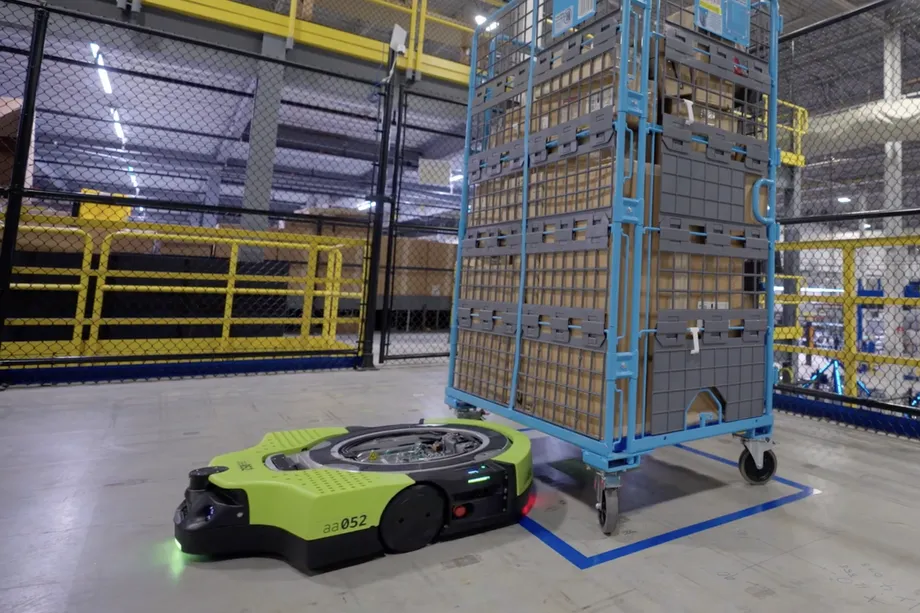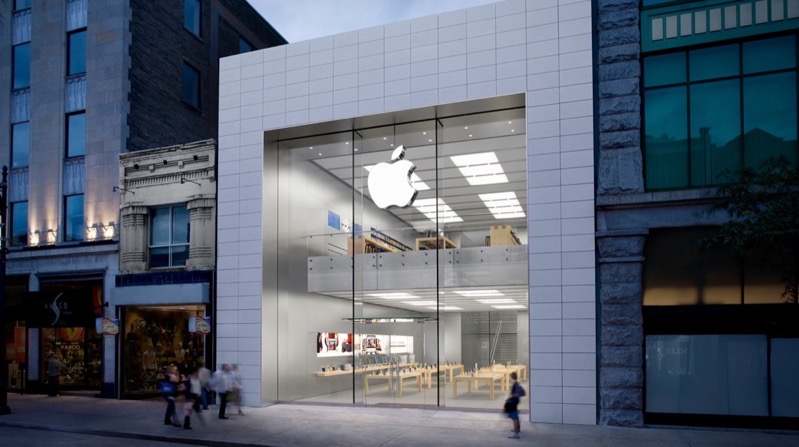
Amazon Unveils its First Fully Autonomous Warehouse Robot [VIDEO]

Image: Amazon
Amazon this week announced “Proteus,” the company’s “first fully autonomous mobile robot” for warehouses (via The Verge).
According to the e-commerce giant, Proteus is designed to lug large carts across its warehouses while safely navigating around human employees thanks to the integration of “advanced safety, perception, and navigation technology.”
Take a look at Proteus in action in the video below:
The robot shines a green light in front of itself for guidance and to avoid obstacles. When the beam of light is interrupted by a human stepping into it, Proteus stops moving. It goes back on its merry way once the person moves away.
Hopefully, Proteus doesn’t have a tendency to “throw itself down” stairs like Amazon’s “Astro” home robots. The company has reportedly only sold a few hundred Astros since announcing them in September 2021.
Amazon also unveiled several other robotic ventures for its warehouses. One of these is Cardinal, a robotic arm that can lift and move packages weighing up to 50 lbs (22.6 kg) and is equipped with computer vision to identify and lift a specific package from an assorted pile.
Another is an advanced camera system that recognizes and logs packages as they are processed, without workers having to individually scan each one by hand. The implementation is similar to what Amazon uses at its cashier-less stores.
Amazon plans to start deploying Cardinal sometime next year. According to the company, both Cardinal and Proteus will improve workplace safety for warehouse staff.
Cardinal could make it so employees don’t have to lift and twist heavy packages, a movement that can lead to injuries, while Proteus could “reduce the need for people to manually move heavy objects.”
Amazon has to be ever more mindful of workplace safety now that workers at its warehouses are unionizing.
The tech juggernaut is also not looking to replace its human workers with robots. A lead at Amazon’s robotics division told Forbes that “replacing people with machines is just a fallacy.”
That said, there are concerns that wider adoption of robots at Amazon could create unrealistic productivity standards for the company’s flesh-and-blood workers.


